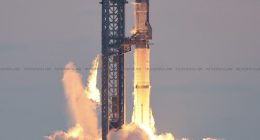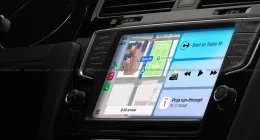SpaceX, the Elon Musk led company, was about to launch Falcon 9 from NASA’s historic launch pad in Florida. However, just before 15 seconds of the launch, the company called it off because of a technical issue with the booster’s upper-stage.
As per the reports, the launch was scrubbed out of an “abundance of caution”, thanks to a vector control issue in the upper stage of the vehicle. The launch has now be rescheduled for Sunday, at 9:38 AM ET. There is about 70 percent chance that the weather will be favorable.
Standing down to take a closer look at positioning of the second stage engine nozzle. 9:38am ET tomorrow is next earliest launch opportunity
— SpaceX (@SpaceX) February 18, 2017
It will be launched from Cape Canaveral, Florida, carrying a Dragon cargo capsule filled with nearly 5,500 pounds of supplies to the International Space Station. The mission is the tenth in a series of commercial resupply missions that NASA has ordered to the space station.
After about 10 minutes of take off, the majority of the rocket will return to the Cape and will land at SpaceX’s ground-based landing site, called Landing Zone 1.
The Falcon 9 launch is special because of the place from where it is launching. The pad is part of NASA’s Kennedy Space Center, and has been home to the biggest space missions of the past 50 years. It is the same site which served as a launch site for the Apollo 11 mission that first sent humans to the moon.
According to NASA, the mission will aid in recording key climate observations and data records. Further explaining the experiment, NASA said:
Science investigations launching on Dragon include commercial and academic research investigations that will enable researchers to advance their knowledge of the medical, psychological and biomedical challenges astronauts face during long-duration spaceflight.
One experiment will use the microgravity environment to grow stem cells that are of sufficient quality and quantity to use in the treatment of patients who have suffered a stroke. A Merck Research Labs investigation will test growth in microgravity of antibodies important for fighting a wide range of human diseases, including cancer.
Initially, the launch wasn’t supposed to take place from 39A. It was supposed to happen last year from SpaceX’s other site at Cape Canaveral Air Force Station called Launch Complex 40. But the launch was pushed back after one of SpaceX’s Falcon 9 rockets exploded on the pad at LC40.
Earlier today, SpaceX made the announcement that it won’t be able to make the said target schedule for the Mars mission. While speaking at a pre-launch press event at Cape Canaveral, the company’s president Gwynne Shotwell confirmed that they’re delaying the ambitious Red Dragon mission by a couple years.
The Tech Portal is published by Blue Box Media Private Limited. Our investors have no influence over our reporting. Read our full Ownership and Funding Disclosure →






